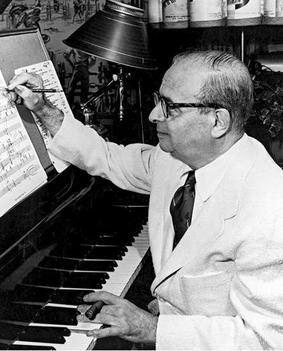by Daniel Hathaway
At 12:15 Noon, in an outdoor concert that can scoff at rainy conditions, guest carillonneur David Osburn will play a concert celebrating Mother’s Day Weekend on the McGaffin Carillon in University Circle. Click here to view the complete program and watch the livestream.
Tonight’s program of short silent films at Transformer Station reflecting The Many Moods of Melodrama: Sentiment, Satire, Horror, and Noir with original scores performed by students from the Oberlin Conservatory of Music is sold out.
And at 7:30 in Finney Chapel, Raphael Jiménez conducts the Oberlin Orchestra in Shulamit Ran’s Violin Concerto with soloist Maya Irizarry Lambright, and Rimsky-Korsakov’s Scheherazade. Click here to watch a livestream.
NEWS BRIEFS:
Complete Bach Cycle in Massachusetts: “In a development that could put Worcester in the center of a world-wide cultural map for a decade or more, Music Worcester will perform all of 18th century German Baroque composer Johann Sebastian Bach’s more than 1,000 compositions during the course of 132 concerts over the next 11 years, culminating on March 21, 2035, the 350th anniversary of his birth.” Read the story here.
Two Orchestral Initiatives: Jeremy Reynolds compares recent experiments in innovative program formats by the Pittsburgh Symphony and Philadelphia Orchestra. Read his Pittsburgh Post-Gazette article here (note: may be behind a paywall).
TODAY’S ALMANAC:
by Jarrett Hoffman

Born on May 10, 1888 in Vienna to a family prominent in theater — and with Richard Strauss as his godfather — Max Steiner was keeping busy in music by age six with several piano lessons a week and an interest in improvisation. Studies with Robert Fuchs and Gustav Mahler at the Imperial Academy of Music made way for work writing and conducting operettas and musicals in London and New York, followed by a move to Hollywood in 1929.
Steiner went on to write over 300 film scores, including The Informer, Little Women, Casablanca, and Gone with the Wind, but our focus today is on 1933’s King Kong. The first American “talkie” to include a feature-length score, and one of the first to feature a 46-piece orchestra, Kong was also revolutionary for Steiner’s use of leitmotif, a technique that would become standard in the language of film music.
And this music might easily have never been written. The production company, RKO Radio Pictures, sought to save money by having Steiner reuse music from other films rather than write anything new. Not pleased with that decision, one of the film’s co-directors, Merian C. Cooper, reached into his own pocket (later to be reimbursed by the studio), paying Steiner fifty grand to do the real thing.
As a side note, not only did the film introduce the public to the character of King Kong, but it also provided an early cinematic sight of the Empire State Building, which had only opened two years earlier. Watch that iconic monster climb that iconic skyscraper in this iconic clip.
By the way, when is an orchestra going to dust off this score for a live movie screening? It might not be the most important issue in programming, but listen to the music for the opening titles here and tell me you don’t want some of that in your life.




